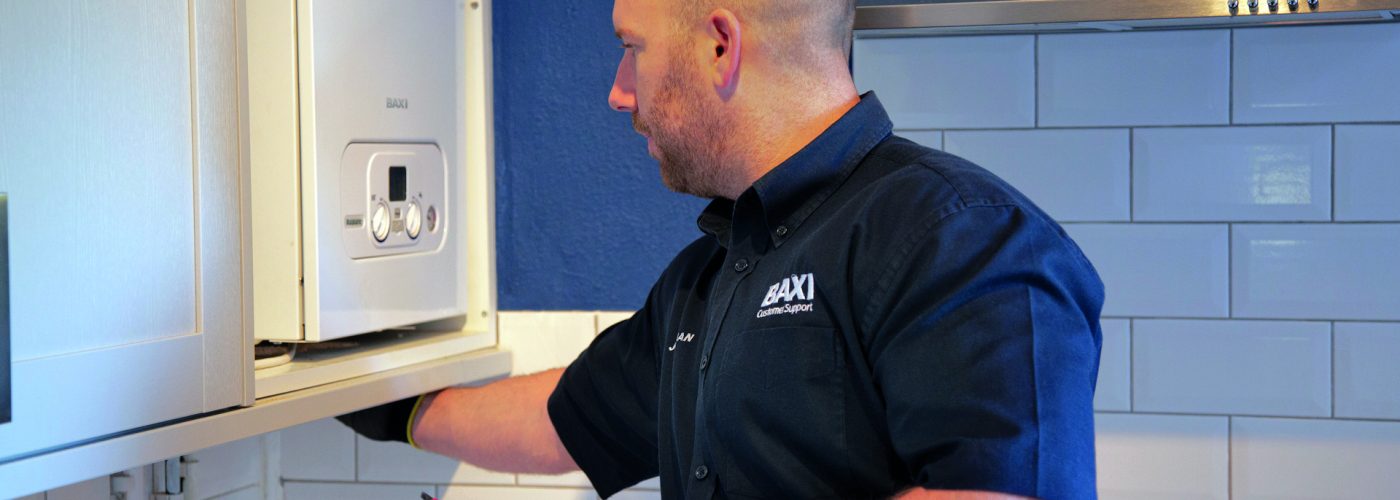As the heating industry moves towards a more sustainable future, there is pressure for developers and specifiers in the new build sector to deliver future-proof and highly energy efficient housing. Tom Murray, Specification Director Commercial and Residential at Baxi Heating, discusses the SAP energy boosters currently available and how specifiers and developers can use them to contribute to the overall efficiency of heating and hot water systems.
Linked to the Building Regulations Approved Document L consultation in 2019, the tenth version of the supporting Standard Assessment Procedure (SAP 10.2) is now on the horizon. What we know so far is that proposed changes to Building Regulations look set to mandate tighter targets for new dwelling emissions. Once the imminent Ministry of Housing, Communities & Local Government (MHCLG) consultation response is released and the implementation date for changes is confirmed, there will be more onus on new build developers to drive low carbon development.
Further recent developments revealed in the Prime Minister’s Ten Point Plan include possible changes to when the Future Homes Standard will be enacted. According to the plan this policy, which seeks to reduce the carbon footprint of new build homes by mandating low carbon heating in all new build houses, may be enacted in 2023, sooner than the 2025 deadline originally intended. The 2023 date was subsequently removed from official supporting documents, although it is expected that the ambition is still to bring this forward, subject to further industry consultation.
What this all points to is that specifiers and developers will need to be reliant on electricity-powered heating and hot water system technologies like cylinders and heat pumps. However, while gas boilers are still being specified for new-builds prior to the Future Homes Standard, extra measures and design considerations will need to be made to ensure compliance with emissions targets..
SAP Boosting Measures
The good news is that there are a number of energy efficiency boosting additions that can be specified to improve the SAP rating of a dwelling including a gas boiler, such as weather compensation, load compensation, smart controls, and heat recovery systems. These systems are often combined to deliver the best results and some even deliver 2-in-1 benefits, like smart controls which often include features such as load compensation functionality along with time and temperature control. These devices measure the gap between what the internal temperature is and what the user wants it to be and modulates the boiler so that it only uses as much fuel as necessary to close the gap.
Weather compensation devices, monitor outdoor conditions and tell the boiler when to adjust its flow temperature. This leads to fuel savings and a more consistent environment. When paired with smart controls, weather compensation is a cost-effective way to raise energy efficiency and lower emissions.
Flue Gas Heat Recovery (FGHR) recycles the heat from the flue gases which would normally be expelled into the atmosphere. The recovered heat is then used to pre-heat water coming into the boiler from the cold mains supply, significantly reducing the amount of gas required by the boiler to heat the water. Likewise, Shower Heat Recovery Units (SHRU) save energy by recycling residual heat from waste shower and bath water via a heat exchanger. When working to peak efficiency, it can recover up to 63% of heat that would otherwise be lost. SHRUs can boost SAP ratings by 5-6%.
Getting it right
Getting building services system design right and knowing how best use to these technologies in the wider context of the building is a science. It involves careful selection of components in order to meet both customer needs as well as emissions considerations. This among other factors such as how the fabric, area and volume of the building will impact heat loss and the overall performance. In order to better support the new-build residential sector to meet the SAP challenge, Baxi Assure offers developers and specifiers a quality range of boilers, cylinders, air source heat pumps and energy booster accessories as part of a complete home service. This includes a fully indemnified Design Service with qualified SAP assessors who can advise on the most cost-effective and efficient hot water and heating solution for new build properties.
Knowing the landscape
While the future of the heating industry is set to change vastly in the coming years, it remains important to consider the challenges facing professionals now. Demand for new housing will continue to rise, and with it the requirement for efficient, low-carbon heating.
As the regulatory landscape continues to adapt, so too will specifiers and developers in the new build space. The housing industry must work together on this journey to net-zero. This is where Baxi Assure is well-positioned to provide a full spectrum of low-carbon heating technologies, design, specification and SAP assessment support, together with useful system add-ons to boost efficiencies such as FGHR and smart, easy-to-use comfort controls.
This period of change in the new build housing sector will be challenging, but is necessary to tackle climate change and meet the UK’s net-zero ambitions. Being prepared by keeping up with legislation and taking advantage of the products and services designed to support this transition is the best way for developers and specifiers to succeed.
To find more information about the Baxi Assure services and SAP energy booster accessories please visit www.baxi.co.uk/assure and follow Baxi Assure on social media linkedin/baxiassure





